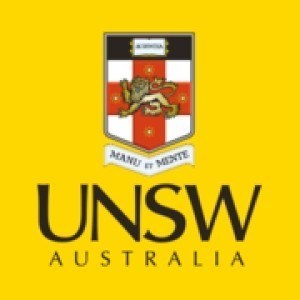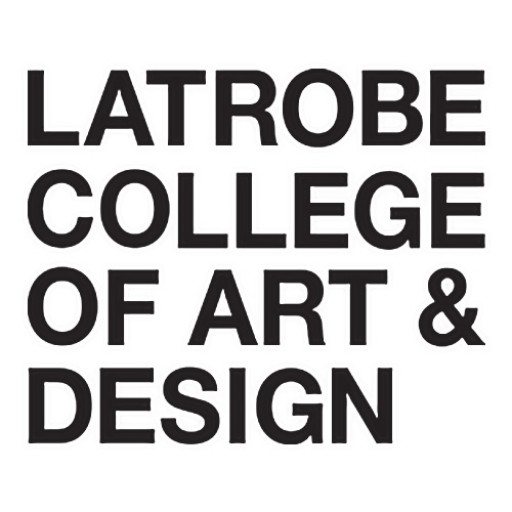Photos of university / #unsw
The Bachelor of Vision Science at the University of New South Wales (UNSW) is an innovative undergraduate degree designed to provide students with a comprehensive understanding of the visual system, encompassing the biological, physiological, and psychological aspects of vision. This program aims to equip students with the fundamental knowledge and practical skills necessary for careers in eye care, vision research, and related healthcare fields. Throughout the course, students explore topics such as ocular anatomy, optics, visual neurophysiology, and visual perception, gaining insight into how we see and interpret the world around us. The degree also emphasizes the development of critical research skills, enabling students to engage in scientific investigations, analyze data, and contribute to advancements in vision science.
Students will have opportunities for hands-on learning through laboratory work, clinical placements, and industry placements, fostering real-world skills and professional experience. The program prepares graduates to pursue postgraduate study in optometry, vision science, or related disciplines, or to enter the workforce in roles such as vision scientists, clinical consultants, and research assistants. UNSW's strong emphasis on interdisciplinary learning ensures students are well-versed in areas like neuroscience, psychology, biomedical engineering, and health sciences, providing a broad foundation for understanding complex visual systems. With access to state-of-the-art facilities and expert faculty, students are supported throughout their academic journey to develop both theoretical expertise and practical competencies. The Bachelor of Vision Science at UNSW is dedicated to cultivating highly skilled professionals committed to improving quality of life through better understanding and management of visual health and vision care.
Stage 1
Semester 1
- BABS1201 Molecules, Cells and Genes (6 UOC)
- MATH1031 Mathematics for Life Sciences (6 UOC) or MATH1131 Mathematics 1A (6 UOC)* or MATH1141 Higher Mathematics 1A (6 UOC)*
- VISN1111 Geometrical and Physical Optics (6 UOC)
- CHEM1031 Higher Chemistry A: Atoms, Molecules and Energy (6 UOC)
* MATH1011 can be taken with permission of the program authority.
Semester 2
- CHEM1829 Biological Chemistry for Optometry Students (6 UOC)
- VISN1101 Seeing the world: Perspectives from Vision Science (6 UOC)
- VISN1221 Visual Optics (6 UOC)
- PHYS1111 Fundamentals of Physics (6 UOC) or PHYS1121 Physics 1A (6 UOC) orPHYS1131 Higher Physics 1A (6 UOC)
Stage 2
Semester 1
- ANAT2111 Introductory Anatomy (6 UOC)
- OPTM2133 The Clinical Environment (6 UOC)
- PHSL2101 Physiology 1A (6 UOC)
- VISN2111 Ocular Anatomy and Physiology (6 UOC)
Semester 2
- OPTM2233 Optical Dispensing (6 UOC)
- PHSL2201 Physiology 1B (6 UOC)
- VISN2211 Function of the Visual System (6 UOC)
- General Education (6 UOC)
Stage 3
Semester 1
- OPTM3105 Disease Processes of the Eye 1 (6 UOC)
- OPTM3133 Science in the Consulting Room (6 UOC)
- VISN3111 Aging of the Visual System (6 UOC)
- General Education (6 UOC)
Semester 2
- OPTM3201 Applied Vision Science (6 UOC)
- OPTM3205 Disease Processes of the Eye 2 (6 UOC)
- OPTM3233 Working in Clinical Contexts (6 UOC)
- PHAR3306 Pharmacology for Optometry (6 UOC)
- High school degree
- IELTS Academic version only 6.5 overall (min. 6.0 in each subtest)
- TOEFL Internet-based Test (iBT) 90 overall (min.23 in writing, 22 in reading, listening and speaking)
- TOEFL Paper-based Test (PBT) 577 overall (min. 5.0 in TWE)
The University of New South Wales offers a range of financial support options for students enrolled in the Vision Science program. Domestic students can access government scholarships such as the New South Wales Government Higher Education Scholarship, which provides financial assistance based on academic achievement and financial need. Additionally, Commonwealth Supported Places (CSP) are available, offering students reduced tuition fees subsidized by the Australian government, thereby making higher education more affordable. For students who require further assistance, UNSW provides various scholarships, including faculty-specific grants, research scholarships, and merit-based awards, which are competitive and aimed at supporting high-achieving students. International students enrolled in the Vision Science program have access to scholarships such as the UNSW International Scholarships and other externally funded awards, which aim to facilitate international students' financial participation in the program. Furthermore, students can explore student loan options like the Australian HELP (Higher Education Loan Program), which allows eligible students to defer payment of their tuition fees until they are earning above a certain income threshold. The university also offers part-time work opportunities on and off-campus to help students finance their studies, including placements, internships, and casual employment in campus facilities. Fees for the program vary depending on the student’s residency status; domestic students benefit from subsidized tuition fees through government support, whereas international students pay full tuition rates. The university provides comprehensive guidance through its financial aid office to assist students in understanding eligibility criteria, application processes, and deadlines for various financial aid and scholarship programs. Additionally, many students combine multiple sources of funding, such as scholarships, loans, and part-time work, to meet their financial requirements throughout their studies. Overall, UNSW aims to reduce financial barriers to education in Vision Science by offering diverse and accessible financing options, ensuring that talented students can pursue their academic and research interests without undue financial stress.
The Vision Science program at the University of New South Wales (UNSW) is a comprehensive and interdisciplinary degree designed to provide students with a deep understanding of the visual system, encompassing anatomy, physiology, psychology, and technological aspects. This program aims to equip students with the theoretical knowledge and practical skills necessary to pursue careers in research, clinical practice, and industry related to vision and eye health. Students enrolled in the program benefit from a curriculum that integrates core knowledge in neurobiology, optics, perception, and visual cognition, alongside hands-on training in state-of-the-art laboratories and research facilities. The program also emphasizes the development of critical thinking, research capabilities, and scientific communication skills, preparing graduates for a broad range of professional opportunities.
Throughout the course, students explore topics such as the biological basis of vision, eye movement, visual disorders, and the application of advanced imaging techniques. Many courses involve collaboration with healthcare professionals, researchers, and industry partners, providing a real-world context for academic learning. The program is often designed to prepare students for postgraduate study and research opportunities, including honours, master's, and doctoral programs in vision sciences or related fields.
UNSW’s Vision Science program also encourages participation in research projects, internships, and conferences, fostering a vibrant academic community and networking opportunities that can be vital for future career development. The program's curriculum is regularly updated to reflect the latest scientific advancements, ensuring students acquire current and relevant knowledge. Graduates of the program have gone on to work in areas such as clinical vision care, eye research, optical technology development, and vision-related public health initiatives. The program's strong focus on empirical research and innovative technology makes it a distinguished choice for students interested in the scientific and technological aspects of vision.





